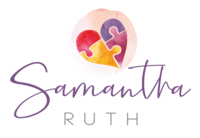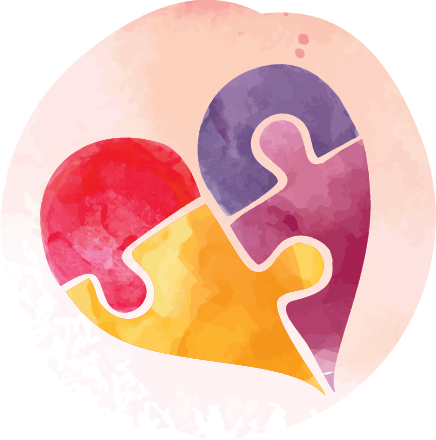Press











ABOUT Sam
SERVICES
Team Ruthless
EVENTS
GRIEFHAB™
PODCAST
RETREATS
shop
HEALING TOGETHER THROUGH THE HOLIDAYS - MAIN EVENT
HEALING TOGETHER - FOR A CAUSE: VIRTUALLY
HEALING TOGETHER - FOR A CAUSE: PILATES IN THE PARK - MICHIGAN
HEALING TOGETHER - FOR A CAUSE: VISIBLE - COLORADO
September 6-7
Jimtember Virtual Jubilee
blog
December 2nd - 8th / Metro Detroit AND VIRTUALLY
August 27th & 28th
August 30-31st
rUTHLESS IN THE ROCKIES
TEAM RUTHLESS
THE CONFIDENCE CONFERENCE
mOBILE rECOVERY dAY
Next event: September 10-23rd, Colorado
October 5-6th -
Virtual Event
September 30th, Castle Rock, Colorado
7 Groups Every week Plus Every Holiday
HEALING TOGETHER - FOR A CAUSE: Ride & ROAR - DALLAS
October 11 -12th
Stay Tuned!
FACES OF GRIEF
JOIN US
Eating Disorders: Let’s Take a Compassionate Approach.
February 23, 2024


National Eating Disorder Awareness Week begins on Monday, February 26th. In observance of this vital awareness week, let’s talk about eating disorders. What are they? What are the risk factors and signs? What can we do to prevent eating disorders, and to offer better support and resources to the people around us?
Content Warning: This blog contains discussions of eating disorders, weight gain/loss, body image, and disordered eating behaviors. If you find these topics uncomfortable or distressing, take the time to decide whether this content is right for you. If you need to talk to someone, you can reach out to me at any time.
Eating disorders are taboo. We don’t discuss them enough, and many people still don’t understand them. But they are common – around 9% of Americans will have an eating disorder at some point in their lives. Awareness can help us better address the root causes of eating disorders, so that we can prevent them – and help those already struggling.
The first step is understanding what eating disorders are.
What Is an Eating Disorder?
An eating disorder is a form of mental illness that is characterized by eating habits or behaviors that are physically or mentally harmful.
There are many different eating disorders, each with its own set of characteristics. Eating disorders aren’t just ‘not eating.’ The most well known eating disorders are anorexia nervosa, and bulimia nervosa (commonly referred to as anorexia and bulimia). Anorexia is characterized by self starvation. Bulimia is characterized by binge eating, followed by a range of behaviors meant to prevent weight gain – including self induced vomiting.
Other eating disorders include but are not limited to Avoidant Restrictive Food Intake Disorder (ARFID), Pica, and Rumination Disorder.
‘Disordered’ eating habits don’t always appear to be unhealthy. In fact, many of the behaviors that characterize eating disorders are societally praised and rewarded. For instance, anorexia is often marked by fasting and excessive exercise. If that sounds like what people are often told to do if they want to lose weight, you’re starting to get the picture. People who fit societally ‘acceptable’ body appearances often receive positive responses to these behaviors, while people who are overweight are likely to be told that they should restrict their eating or increase exercise – with little regard for one’s mental health at all.
And eating disorders don’t only impact women and girls. Research suggests that around 25% of people with eating disorders are men. The point is: set aside the stereotypes, and understand that anyone can have an eating disorder.
So if anyone can have an eating disorder, how do you recognize the signs?
What Are the Signs of an Eating Disorder?
The signs of an eating disorder can vary for each individual. There are both psychological and physical signs that you can look for. Here are a few common signs:
- A constant focus on weight, body image, food, or eating.
- ‘Body checking,’ or frequently checking body in mirrors.
- Social withdrawal.
- Extreme mood swings.
- Avoidance of eating socially.
- Exhaustion.
- Extreme weight fluctuations.
- Stomach troubles.
- Dizziness.
- Irritability.
While most of these could be signs of other mental or physical illnesses, knowing the signs can help you determine when someone around you needs help.
And just to be clear – these are common signs! It’s the combination of several signs with the fact that such signs and behaviors are interfering in one’s life and overall functioning that separate eating disorders from everyday behaviors.
It also helps to know the risk factors of eating disorders. For instance, if a friend is related to or in close proximity to someone with an eating disorder, they are more likely to develop one themselves. If your loved one struggles with other mental illnesses, this may put them at risk. And if a person’s weight is stigmatized, especially if they experience bullying, their risk of developing an eating disorder increases.
But now that you understand what an eating disorder is, what can you do to prevent eating disorders (and help those who already have them)?
How Can We Prevent and Address Eating Disorders?
It’s all about compassion. If we aren’t approaching this issue with open minds and empathy for those struggling with these disorders, we can’t be effective in helping them.
Eating disorders are a lot like grief. Because food is everywhere. Events are centered around food. Entire holidays are planned around meals. And we have to eat! Alcoholics can choose not to go to bars or put themselves in unhealthy situations most of the time – there are still some unavoidable situations, and we should all be mindful of this as well. But you can’t avoid food. Just like you can’t avoid every situation that could trigger a grief response. You have to just learn to handle each situation as it happens. When you interact with someone who has an eating disorder, keep this in mind: they are fighting a constant battle with their thoughts and habits.
But compassion shouldn’t start when you find out that someone has an eating disorder. Let’s not wait. Let’s not make it anyone’s responsibility to tell us they have an eating disorder. Let’s be proactive and considerate always.
One of the best things that we can do individually is to push back against the things our society does that contribute to eating disorders. American media creates unrealistic standards for all of us, especially women. They promote (and idolize) extreme thinness – not just size 0, but size 00. From childhood, we see magazine covers of celebrities, edited to the point of being dishonest. We hear about new beauty trends, like ‘buccal fat removal.’ We constantly hear words like ‘diet,’ and are told we need to prioritize thinness over everything else. These messages are harmful, and counterproductive to actual health.
So if you want to help stop the cycle of disordered eating, think about the messages you’ve internalized. Remove words and phrases like, ‘diet,’ ‘junk food,’ and ‘I’m so fat,’ from your everyday vocabulary. Remove the stigma of eating disorders and “good” and “bad” foods and go about life with empathy for those struggling.
If you believe that someone is struggling with an eating disorder, encourage them to reach out to a mental health professional, or to their primary care physician.
And remember, you can reach out anytime: sam@samantharuth.com
PS: If you want to stay engaged with awareness weeks throughout the year, this is for you! The 13 Month Griefhab 2024 Awareness Calendar was designed to showcase EVERY important awareness day, week, and month. Each month features inspiring quotes, as well as artwork designed by a child impacted by grief. You can purchase your awareness calendar here: https://buy.stripe.com/cN25lv9JEbeS3E428k and contact sam@samantharuth.com for bulk orders.
Leave a Reply Cancel reply
120 E. Front St. Loft 2 Traverse City MI 49684 &
77 Monroe Center St Ste 600 Grand Rapids MI 49503
phone : +1 (231)707-0707


Donate TO GRIEFHAB™
Donate today to help make our events and services free for everyone.
You can also donate directly to support a specific client in need.
four
three
info & Investment
two
THE FOUNDER
one
fIVE
GRAB A COPY OF MY
BOOKS & MERCHANDISE
four
three
info & Investment
two
THE FOUNDER
one


fIVE
GRAB A COPY OF MY
BOOKS & MERCHANDISE










HEALING TOGETHER EVENT
EVENTS
four
three
info & Investment
two
THE FOUNDER
one
fIVE
GRAB A COPY OF MY
BOOKS & MERCHANDISE
four
three
info & Investment
two
THE FOUNDER
one





fIVE
GRAB A COPY OF MY
BOOKS & MERCHANDISE










FACEBOOK FAMILY
GRIEFHAB™ SERVICES
FACES OF GRIEF
Our Press Features
THE BE RUTHLESS SHOW
two
three
Recent Articles
one





Coming in September! Stay Tuned.
December 2nd -8th / Metro Detroit AND VIRTUALLY
August 25th
August 30-31st
October 11 -12th
Stay Tuned!










four
three
info & Investment
two
THE FOUNDER
one





fIVE
GRAB A COPY OF MY
BOOKS & MERCHANDISE
four
three
info & Investment
two
THE FOUNDER
one





fIVE
GRAB A COPY OF MY
BOOKS & MERCHANDISE









